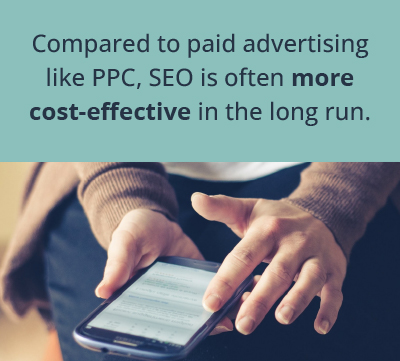 In many conversations I have with prospective clients, the perception around SEO is that it’s only a top-of-funnel strategy and not seen as a method for lead generation or a revenue driver.
In many conversations I have with prospective clients, the perception around SEO is that it’s only a top-of-funnel strategy and not seen as a method for lead generation or a revenue driver.
In this blog post, I’ll delve into the challenges behind why this is the case, explore how SEO can help increase sales, and discuss how to convey its value to executives.
The Challenges of Reporting SEO Value
- Lack of Proper Configurations: Attributing revenue to SEO requires sophisticated tools and accurate configurations to extract the necessary data. Many companies don’t have internal analytics teams to help solve these problems.
- Complexity of Attribution: Attribution, understanding which touchpoints led to a sale, is often intricate in the digital age. SEO’s contribution to the sales funnel can be challenging to quantify. The customer’s journey may involve multiple interactions with your brand, including organic search, which can make attributing a sale to SEO a complex task.
- Lack of Historical Data: New businesses or those entering the online marketplace may face a lack of historical data. Without past performance metrics, it can be challenging to set benchmarks and demonstrate the impact of SEO on sales.
How SEO Can Help Increase Sales
- Powerful Acquisition Channel: SEO is a formidable acquisition channel. By optimizing your website and content for relevant keywords, you can attract a highly targeted audience actively searching for your products or services. This organic traffic is more likely to convert into paying customers.
- Improved Customer Retention Rates: SEO isn’t just about acquiring new customers; it also enhances customer retention. High-quality, informative content can keep your audience engaged, informed, and loyal, resulting in repeat sales and long-term customer relationships.
- Reduced Customer Acquisition Cost: Compared to traditional advertising methods, SEO often delivers a lower cost per acquisition. Effective SEO strategies can help you reach your target audience at a fraction of the cost, leading to improved ROI.
- Reputation and Brand Building: SEO isn’t just about keywords; it’s also about building a strong online reputation and brand presence. Higher search engine rankings contribute to trustworthiness, making customers more likely to choose your brand over competitors.

How to Explain the Value of SEO to C-Suites
In a Moz Whiteboard Friday, Larry Waddell gives a fabulous explanation of how he explains the value of SEO to executives. His recommendations of focusing on business metrics and outcomes are ones that I’ve adopted into my own meetings with clients:
- Increased Revenue: Highlight how SEO efforts directly contribute to gross profit, not just revenue.
- Reduced Cost: Reducing cost creates value. If there’s something you can do at a lower cost than can be done in-house or elsewhere, that’s a value-add.
- Cost Avoidance: Provide recommendations about how SEO can help contribute to the bottom line in the long run.
- Providing Insurance: These can be projects that may be expensive upfront but are designed to prevent far greater loss in the long run.
By effectively leveraging SEO, businesses can acquire and retain customers, reduce acquisition costs, and build a strong brand reputation. When communicating its value to executives, emphasize revenue growth, cost reduction, cost avoidance, and the insurance factor that SEO provides in today’s dynamic business environment.
Let’s Discuss How Technical SEO Services Can Contribute to Your Business’s Goals
Are you looking to elevate your online presence and drive more organic traffic to your website? Our SEO agency is here to help you achieve your business goals. We understand that every company is unique, and that’s why we offer personalized SEO solutions tailored to your specific needs.
Reach out to our team today!

